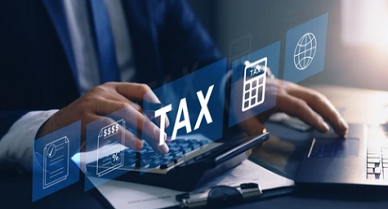Guarantor Cannot Enjoy ‘Right of Subrogation’ Even After CIRP Against Principal Debtor Gets Concluded
Introduction- The case in question refers to the petition filed by the State Bank of India (hereinafter referred to as Financial Creditor) seeking an order for the initiation of the insolvency proceedings against Sri Ghanshyam Surajbali Kurmi who is the Personal Guarantor of Apex Drugs Limited (Principal/Corporate Debtor). The petition has been filed under Section 95(1) of Insolvency and Bankruptcy Code, 2016 read along with Rule 7(2) of the Personal Guarantors Insolvency Rules, 2019. It is a stated fact that the corporate debtor in this instant case is the principal borrower and the Respondent No 2 stood as the personal guarantor in order to secure the repayment of the financial assistance availed by the Corporate Debtor. The petition has been filed to make the personal guarantor liable for the non-payment of the loan amount by the corporate debtor.

Introduction of the Rationale given in State Bank of India v Sri Ghanshyam Surajbali Kurmi[1]
The case in question refers to the petition filed by the State Bank of India (hereinafter referred to as Financial Creditor) seeking an order for the initiation of the insolvency proceedings against Sri Ghanshyam Surajbali Kurmi who is the Personal Guarantor of Apex Drugs Limited (Principal/Corporate Debtor). The petition has been filed under Section 95(1) of Insolvency and Bankruptcy Code, 2016[2] read along with Rule 7(2) of the Personal Guarantors Insolvency Rules, 2019[3]. It is a stated fact that the corporate debtor in this instant case is the principal borrower and the Respondent No 2 stood as the personal guarantor in order to secure the repayment of the financial assistance availed by the Corporate Debtor. The petition has been filed to make the personal guarantor liable for the non-payment of the loan amount by the corporate debtor.
Facts of the case
It is stated that the Corporate Debtor i.e., Apex Drugs Limited had been granted some loans by the petitioner bank at several occasions under the Corporate Insolvency Resolution Process. The total amount of loan given in favour of the corporate debtor stood at around Rs. 208,21,65,555.24 crores. After receiving the credit facilities, the Corporate Debtor failed to perform his share of the bargain and stopped operating the loan accounts and thus, his account was later classified as a ‘Non-Performing Asset[4]’ It was then that the Financial Creditor send a demand notice under Section 13(2), of the SARFAESI Act, 2002[5], to the Principal Borrower/ Corporate Debtor. The financial Creditor also filed a petition before the Adjudicating Authority ruling over this case which was thereby admitted on 06/09/2018. It was in pursuant to the new I & B (Application to Adjudicating Authority for Insolvency Resolution Process for Personal Guarantors to Corporate Debtor) Rules, 2019[6], that the financial creditor was permitted to initiate insolvency proceedings against personal guarantors, and therefore, the personal guarantor, Shri. Ghanshyam Surajbali Kurmi, received a demand notice on 16.08.2022.
Issues Raised
The petitioner bank stated that according to the new rules, the Financial Creditor can initiate insolvency proceedings against the Personal Guarantor to the Corporate Debtor in order to recover the money so loaned. It was also contended that the there is no specific bar under the IBC[7] that prohibits the initiation of insolvency proceedings against the Personal Guarantor of the Corporate Debtor. Once the money has been recovered and the insolvency process is finished, the guarantor in question does not get the subrogation rights[8] for the payment done in favour of the debt so guaranteed in the first place. Thus, the main argument of the Financial Creditor was:
Whether the Clause-F of the approved Resolution Plan bars the Financial Creditor to initiate Insolvency Resolution Process against the Personal Guarantor?
Elucidation given by the Adjudicating Authority
The Hon’ble Adjudicating Authority (NCLT-Hyderabad) after hearing the arguments, referred to the judgement given by the Hon’ble Supreme Court in Lalit Kumar Jain v Union of India[9] wherein it was held:
“In view of the above discussion, it is held that approval of a resolution plan does not ipso facto discharge a personal guarantor (of a corporate debtor) of her or his liabilities under the contract of guarantee.”[10]
It was also emphasised upon by the adjudicating authority in reference to the verdict given in Lalit Kumar Jain[11] that the only way the personal guarantor can be relieved of its debt liability is when the creditor voluntarily decides in favour of it and not through operation of law. Therefore, as in this case, the Corporate Debtor is discharged of its liabilities because of the insolvency resolution plan approved by the NCLT and not at the instance of the creditor. The same was held in SBI v Ramakrishnan[12] and Sandeep Garg & amp; Ors v M/s DMI Finance Pvt. Ltd[13]. Thus, the guarantor cannot be said to have been discharged of its liability under the Code. In reference to Clause F of the Resolution plan was conference, the bench held that the personal guarantor will be discharged of its future liabilities and not of the past/present.
The bench also referred to Lalit Mishra & Ors. v Sharon Bio Medicine Limited[14] wherein Appellate Tribunal ruled that because procedures under the Code are not recovery actions, the guarantor cannot use its subrogation right under the Indian Contract Act, 1872[15]. The idea behind the legal actions brought under the Code is to resurrect the business with a focus on maximising the value of its assets rather than making sure that credit is accessible to all stakeholders. Therefore, placing reliance on judgement in Lalit Mishra[16], the tribunal held that Sri Ghanshyam Surajbali Kurmi (personal guarantor of the corporate debtor) cannot exercise its subrogation rights to recover the amount as that would overturn the idea & the object behind the code.
Thus, the adjudicating authority in this case ruled that that the CIRP (Corporate Insolvency Resolution Plan)[17] does not prevent the financial creditor from initiating insolvency proceedings against the personal guarantor of the corporate debtor. The personal guarantor was thereby ordered to go into the Insolvency Resolution Process and would not be given any subrogation rights to recover the debt guaranteed.
Conclusion
The Hon’ble NCLT while giving its verdict emphasised on the fact that the insolvency resolution process is not a recovery procedure but is rather a revival procedure for the Corporate Debtors. This viewpoint is correct and justified as the personal guarantor already stood as a surety for the Corporate Debtor and is therefore rightfully bound to repay the amount in default. Owing to the revival nature of the CIRP[18], the subrogation rights cannot be granted to the corporate debtor’s personal guarantor as that would beat the entire object of the code in general and the Corporate Insolvency Resolution Process[19] in specific.
Author: Akshita Shandil, 3rd year at Rajiv Gandhi National University of Law, Patiala, in case of any queries please contact/write back to us at support@ipandlegalfilings.com or IP & Legal Filing.
[1]State Bank of India v Ghanshyam Surajbali Kurmi, (2022) SCC OnLine NCLT 177
[2]Insolvency and Bankruptcy Code, 2016
[3]Insolvency & Bankruptcy (Application to Adjudicating Authority for Insolvency Resolution Process for Personal Guarantors Corporate Debtor) Rules, 2019
[4]Clause 2, Master Circular on Income Recognition, Asset Classification, Provisioning & Other Related Matters, Reserve Bank of India, 2009
[5]Securitisation and Reconstruction of Financial Assets and Enforcement of Securities Interest Act, 2002
[6]Ibid
[7]Supra, pt.1
[8]Section 140 & 141, Indian Contract Act, 1872
[9]Lalit Kumar Jain v Union of India, (2021) 3 SCC 321
[10]Ibid
[11]Ibid
[12]SBI v Ramakrishnan (2018) 17 SCC 394
[13] Sandeep Garg & amp; Ors v M/s DMI Finance Pvt. Ltd, Company Appeal (AT) (Insolvency) No. 321 of 2021
[14]Lalit Mishra & Ors. v Sharon Bio Medicine Limited (2018) SCC OnLine NCLAT 669
[15]Supra, pt.7
[16]Ibid
[17]Section 12(1), Insolvency and Bankruptcy Code, 2016
[18]Ibid
[19]Ibid


